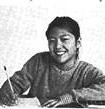An armless pianist who plays with his toes has won the first series of China’s version of the internationally popular TV talent show, “China’s Got Talent.”Liu-九年级英语
题文
 An armless pianist who plays with his toes has won the first series of China’s version of the internationally popular TV talent show, “China’s Got Talent.” Liu Wei, a 23-year-old Beijing-born pianist, who lost both his arms at the aged of 10 when he was electrocuted(触电)during a game of hide-and-seek. Liu Wei stayed in rehabilitation(康复)centre for 2 years. When he got out, he was introduced to Beijing’s disabled swimming team, and he managed to take 2 gold medals in the National Disabled Swimming Championship at the aged of 14. But soon he was told not to do too much sport by the doctor. Liu Wei was very sad. Luckily, the door was shut on sports, but it opened in music. At the age of 18, he started to learn the piano. He could not find a teacher to lead him to play with his toes, so he began teaching himself. Liu said, “I knew if I tried, I might get a chance at success. If I didn’t try, I would lose my future.” He carried on a daily 7-hour practice, his improvement gave him hope. He kept practicing and made progress gradually. In early 2011, he gave a memorable performance in Vienna’s Golden Concert Hall. In 2012, he received the award “Top Ten People Who Moved China”. 小题1:Liu Wei lost both his arms when he was______ years old. A. 10 B. 14 C. 23 小题2:Besides playing the piano, Liu Wei is also good at _______. A. playing games B. learning from others C. armless swimming 小题3:Liu Wei was taught by ________ to play the piano with toes. A. his teacher B. his mother C. himself 小题4:The sentence “The door was shut on sports, but it opened in music” means that Liu Wei ______. A. lost the future of music B. got other chances at success C. couldn’t do sports 小题5:The best title of this passage is “_________” A. One is never too old to learn B. Time and tide wait for no man C. Where there’s a will, there’s a way |
答案
小题1:A 小题2:C 小题3:C 小题4:B 小题5:C |
| 本文主要讲述的是23岁的无臂钢琴师刘伟,凭借自己坚强的意志,始终坚信这样一句话:很多事情你努力去做了,可能什么都得不到,但你不努力去做,肯定什么都得不到。在自己的努力下,他战胜了自己,战胜了别人无法做到的事情。钢琴王子刘伟用脚趾弹钢琴的故事,他在舞台上的这一幕感动了数万人。 小题1:细节理解题。根据文章第二段第一行可知。 小题2:细节理解题。根据文章第二段倒数二 三两行可知。 小题3:细节理解题。根据文章倒数第二段倒数第二行可知。 小题4:细节理解题。句意:体育之门关闭了而音乐之门打开。故选C。 小题5:主旨大意题。根据全文主旨可知。 |
据专家权威分析,试题“An armless pianist who plays with his toes has won the first..”主要考查你对 人物传记类阅读,故事类阅读 等考点的理解。关于这些考点的“档案”如下:
人物传记类阅读故事类阅读
考点名称:人物传记类阅读
- 人物传记类阅读:
本类型选材主要是名人轶事。
人物传记的叙述线索也常常以时间为序。内容一般不是一个人的生活流水账,而是选取主人公一些重要的人生阶段或生活片段来展开叙述。
阅读时要把握主人公在此阶段发生的事对他本身或他人有什么重要的意义和影响。
考点名称:故事类阅读
故事类阅读:
文章一般描述的是某一件具体事情的发生发展或结局,有人物、时间、地点和事件。
命题往往从故事的情节、人物或事件的之间的关系、作者的态度及意图、故事前因和后果的推测等方面着手,考查学生对细节的辨认能力以及推理判断能力。
阅读这类材料时,同学们一定要根据主要情节掌握文章主旨大意,同时抓住每一个细节,设身处地根据文章内容揣摩作者的态度和意图,根据情节展开想象,即使是碰到深层理解题也可迎刃而解。- 故事类阅读注意:
初中生接触到的阅读材料大都是故事类。
阅读故事类的材料,应该抓住人物线索、地点线索、时间线索和情节发展线索。
特别注意的是,以上线索往往是并存的。因为情节的发展总是涉及到人物的变化、时间的推移、场景的变换等。
而阅读材料后的阅读理解往往会围绕这些内容设计一些事实类的理解题。
凡事实类的理解题都可以从阅读材料的表层文字中找到答案。
在阅读故事类短文时,应理解文章的深层含义,也就是它的主题。在此需要注意的是,现在的阅读理解题在测试事实类的理解题的同时,往往有一道推理类理解测试题.
- 最新内容
- 相关内容
- 网友推荐
- 图文推荐
上一篇:On a recent day, “Linsanity” is popular all over the world. It’s the combination of “Lin” & “insanity”, referring to the person who made surprising succes-九年级英语
下一篇:Mr. Jones works in a factory far away from his home. One day he wanted to send a letter to his wife, but he could neither read nor write, and he had to work al-九年级英语
零零教育社区:论坛热帖子
| [家长教育] 孩子为什么会和父母感情疏离? (2019-07-14) |
| [教师分享] 给远方姐姐的一封信 (2018-11-07) |
| [教师分享] 伸缩门 (2018-11-07) |
| [教师分享] 回家乡 (2018-11-07) |
| [教师分享] 是风味也是人间 (2018-11-07) |
| [教师分享] 一句格言的启示 (2018-11-07) |
| [教师分享] 无规矩不成方圆 (2018-11-07) |
| [教师分享] 第十届全国教育名家论坛有感(二) (2018-11-07) |
| [教师分享] 贪玩的小狗 (2018-11-07) |
| [教师分享] 未命名文章 (2018-11-07) |






